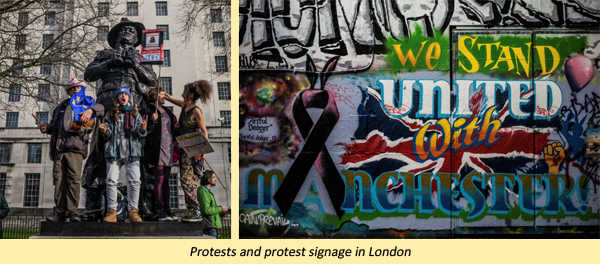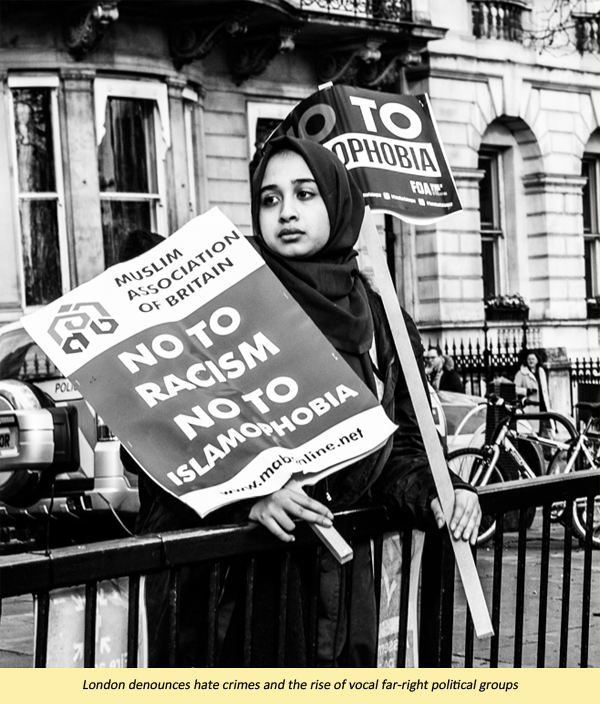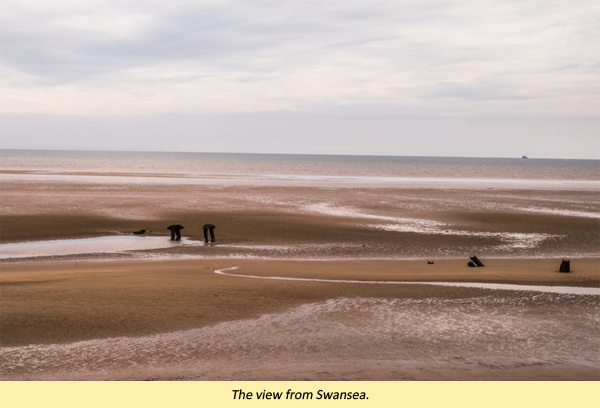On presenting outside of my discipline
By Aaron Anfinson

Last summer, my partner and I were fortunate enough to receive funding to present on a recently published article. The conference, however, was to be my first presentation outside of an explicit disciplinary focus on sociolinguistics that I had just been starting to get acquainted with in the School of English. It was an international conference on Terrorism and Social Media hosted by the University of Swansea—part of a new initiative to understand contemporary terrorism in the United Kingdom, a country that has had to become all too familiar with responding to violent acts of terror. Looking through the abstracts and affiliations, I immediately stood out. I was not only one of the few presenters outside of Europe and America but I was also the only presenter from a ‘School of English’. As the date drew nearer, questions of how I would be received burned anxiously in the back of my mind.

To make it worse, news of the conference was published in The Guardian. The list of keynote speakers expanded to include the head of the 9/11 Commission in America, the former head of the British Secret Intelligence Service, the Independent Reviewer of Terrorism Legislation in the UK, Facebook’s lead policy manager, a US constitutional lawyer and current terrorism professors. And then there was me. Who am I? How was I going to come across? I had that feeling that you get right before you start a presentation, go on stage or teach a new class. I felt the anxiety that one is usually able to push to the side. That feeling you can ignore until those last two seconds before it is clear that you must begin that which felt a lifetime away at breakfast earlier that morning. For me, however, it did not last for two seconds. It lasted for two days.

And yet, when I did finally make it to the conference, the anxiety quickly melted away. I immediately noticed that, from critical discourse analysis to literary criticism, many of the discussions engaged with on a daily basis within our school are not so different from the approaches that inform a critical understanding of current policies and political issues. Actually, I’d even go so far as to say that the discussions within our School of English can and should inform an understanding of such issues. I was once again reminded of the importance of a humanities approach to understanding the order of things.
I was pleasantly surprised. Not only was our talk well received, we were encouraged and engaged with (even by members from the US State Department). The anxiousness on the two-day journey across the UK now felt juvenile and misplaced. It highlighted the distinctions that I had imposed upon myself and revealed my own preconceived notions as the biggest hindrance and source of anxiety. Of course, there is something to be said about the job search and ‘Research Excellence Frameworks’ etc. that reinforce such confines (for better and worse), but in this case the bias was all mine. Overall, it was a lesson to focus on the issues, arguments and critique instead of self-ascribed labels.


Our apologies, you must be logged in to post a comment.